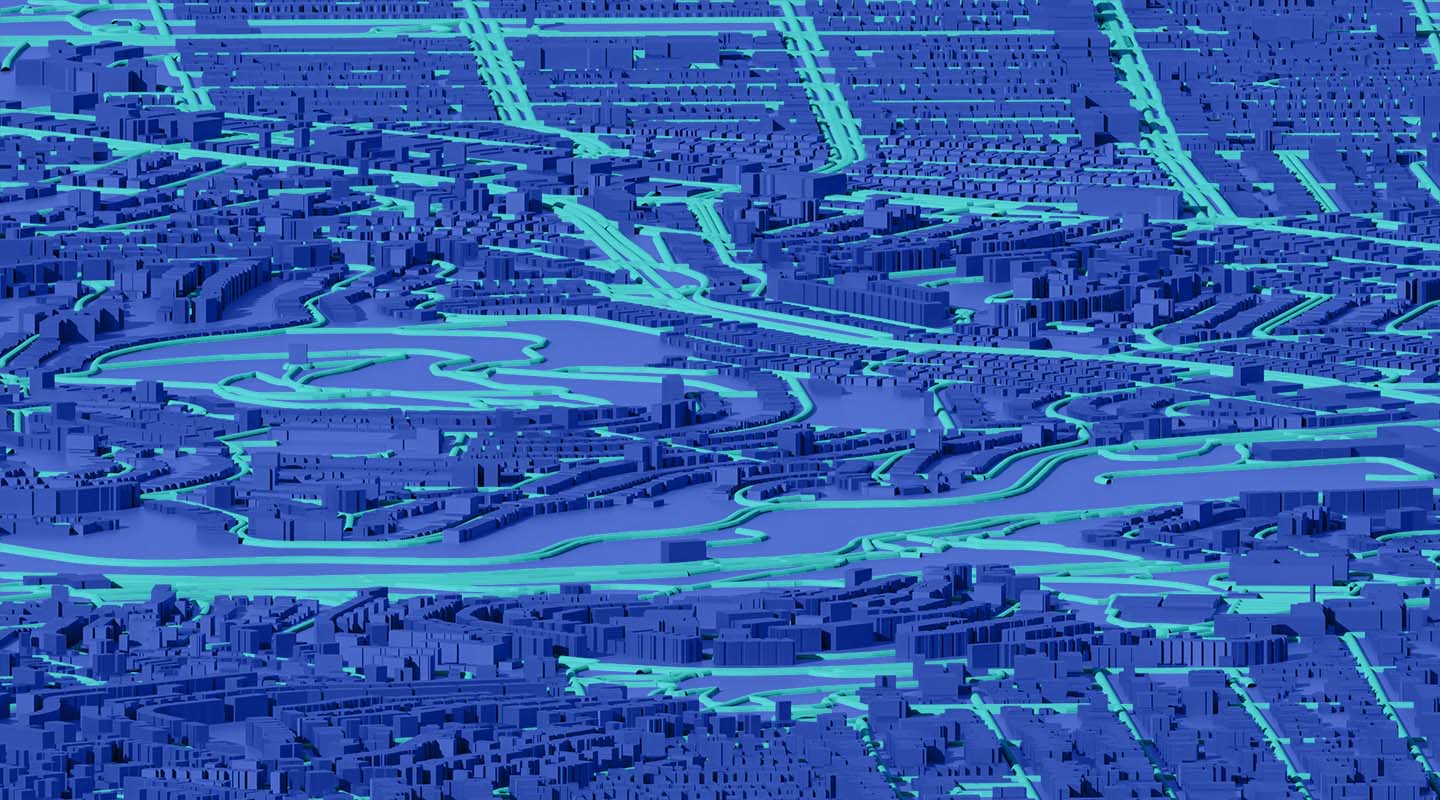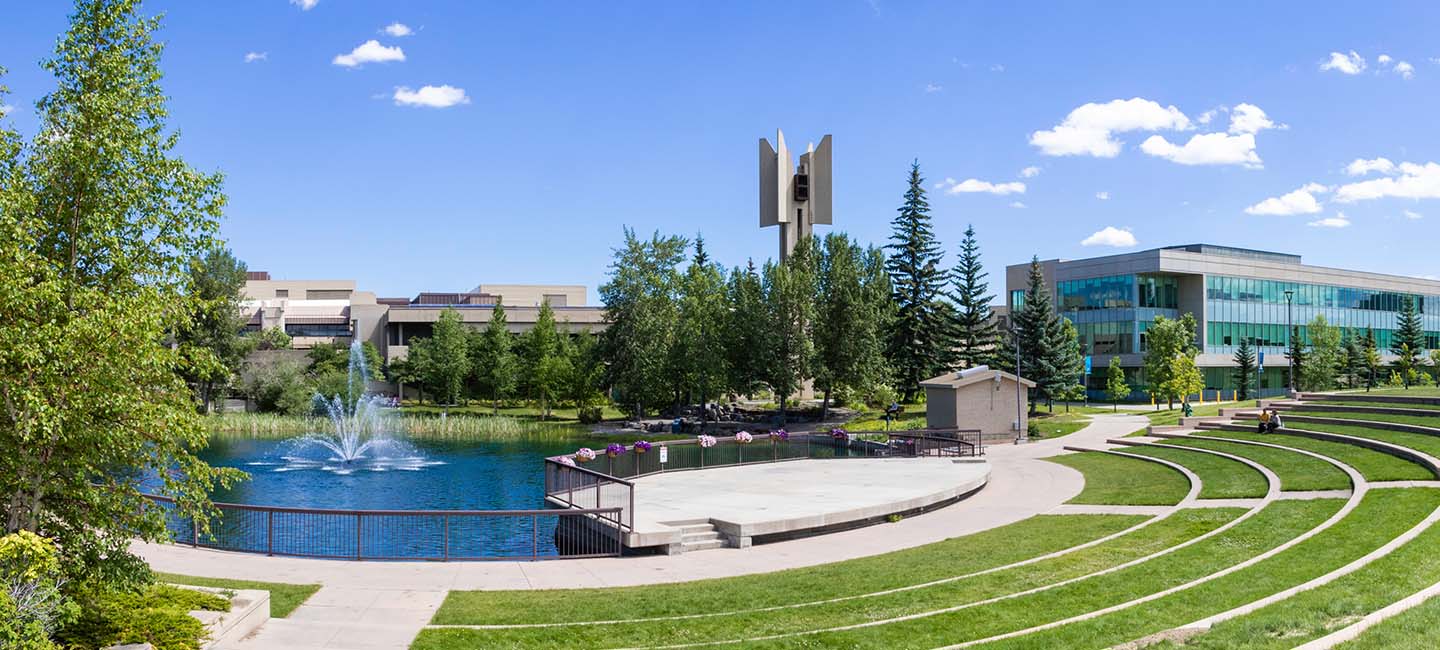
Why study spatial data science?
Advance your expertise in analyzing and mapping location-based data to solve complex real-world challenges and support data-driven decisions.
Discover how spatial data science and geospatial tools unlock insights from location data to solve real-world challenges. MRU’s Spatial Data Science Post-Bachelor’s Certificate deepens your skills in GIS, remote sensing and machine learning, combining geography, computer science and analytics. Gain hands-on experience with drones, satellite imagery and predictive modeling to collect, manage and visualize spatial data. Build in-demand expertise for careers in urban planning, environmental science, business and public health in today’s data-driven world.
The certificate includes 10 courses (30 credits) that can be completed in one year, with five courses completed in both fall and winter semesters.
Information sessions — Virtual and in-person
Tuesday, Feb. 24 | 4 p.m.
Thursday, Feb. 26 | 6 p.m.
Join us to learn from faculty and current students about the Spatial Data Science program. Bring your questions and hear insights into how this certificate program equips you with the analytical tools needed to solve complex, location-based challenges in today’s data-driven world.
Program highlights
- Learn how to analyze and map spatial data to solve problems in areas like urban planning and environmental science
- Learn to use drones, satellite images, GIS and machine learning to collect and visualize data
- Complete 10 courses (30 credits) in just one year
- Work on practical projects combining geography, computer science and data analytics
- Great for internationally trained professionals looking to build expertise in Canada
Career possibilities
What jobs can I get with a certificate in spatial data science?
Graduates with spatial data science skills are in high demand across sectors, with opportunities in planning, monitoring and geospatial tech. Potential roles include:
Curriculum and courses
What courses will I take in spatial data science?
Designed for professionals with a bachelor’s degree, the program emphasizes applied spatial data science through focused coursework and projects.
Explore full curriculum and coursesCurriculum snapshot

Experiential learning
Apply your scientific learning across disciplines with opportunities to build experience in labs, research and more.
- Build hands-on skills with geospatial tools, big data, machine learning and data visualization
- Gain practical experience applying spatial data science in environmental, IT and business contexts
- Engage with projects integrating computing, data science and geography disciplines
- Learn Canadian industry standards and practices, ideal for internationally trained professionals
Admission requirements
Requirements can vary, so it’s important to review what’s needed for your area of interest.
What are the requirements for Spatial Data Science Post-Bachelor’s Certificate?
Bachelor’s degree.Note: It is strongly recommended that students entering this program have knowledge of statistics, introductory mapping and GIS skills, and a familiarity with a programming language.
If English is not your first language, you’ll need to meet two separate English requirements to be admitted to Mount Royal:
- You’ll need to successfully complete an English course if it’s part of your program’s admission requirements
- Show that you meet Mount Royal’s English Language Proficiency (ELP) requirements
Admission deadlines
Fall 2026 intake
Early admission
Oct. 1, 2025 - Feb. 1, 2026
Ongoing admission based on program space and availability
Feb. 2, 2026 - program is full
What is early admission?
During the early admission period, all applications are treated as though they were received at the exact same time. This means all competitively qualified applicants will be accommodated. At MRU, we actually receive most of our applications and fill many of our programs from applications submitted during early admission. It is an ideal time to apply and helps expedite the process so you hear back earlier too.
Early admission deadlines
Fall Semester:
Early admission is open from Oct. 1 to Feb 1.
Winter Semester:
Early admission is open from Oct. 1 to Nov. 1.
Costs
We know your investment in post-secondary education is a big deal. Make sure you’re on the right financial track by reviewing the costs, scholarships and financial support available.
How much does the Spatial Data Science Post-Bachelor’s Certificate cost?
The cost of your studies depends on a few things, like the program you choose and whether you’ll live at home or in Residence.
To get a better idea of what you might spend, try using our first-year student budget estimator. It gives a detailed breakdown of estimated costs.
You can also visit our tuition and costs page for full details on tuition and fees for a full year.
Does MRU offer scholarships or financial aid?
At Mount Royal, we want you to focus on your education, not worry about how to pay for it. There are many ways to help cover the cost of your studies.
Scholarships and bursaries
Mount Royal gives out over $5 million each year in scholarships and bursaries! These awards look at things like your grades, financial need and your involvement in school or the community.
Financial aid
There are financial aid options from the provincial and federal governments for both full-time and part-time students. These include student loans, grants and bursaries.
Other resources
You can also explore other ways to pay, like using RESPs (Registered Education Savings Plans) or CPP (Canada Pension Plan) benefits.
How do I apply for scholarships and bursaries?
To be eligible for scholarships and bursaries, you must apply for Early Admission from Oct. 1 to Feb. 1. You can apply for scholarships and bursaries from Nov. 1 to March 1.
Have questions?
Our info sessions are a great way to explore MRU programs, learn how to apply and connect with people who are here to help.
Book an info sessionConnect with the Admissions and Recruitment Office for more one-on-one support.
Contact us
Why MRU
At MRU, learning is about more than lectures and textbooks. It’s about evolving through experience. With small class sizes, supportive faculty and hands-on opportunities, students are encouraged to think critically, push boundaries and uncover what they’re capable of. MRU helps students build the skills, confidence and curiosity to shape meaningful futures in Calgary and beyond.
Discover why MRULearn about the additional supports and services we have available specifically for:
International students Indigenous studentsFaculty of Science and Technology
Mount Royal offers two bachelor's degrees in Science and Technology: The Bachelor of Computer Information Systems and the Bachelor of Science with majors in General Science, Biology, Chemistry, Computer Science, Data Science, Environmental Science and Geology.
Spatial Data Science info sessions
Join us for a virtual or in-person session to chat with faculty, ask questions and explore our certificate program.
View events
